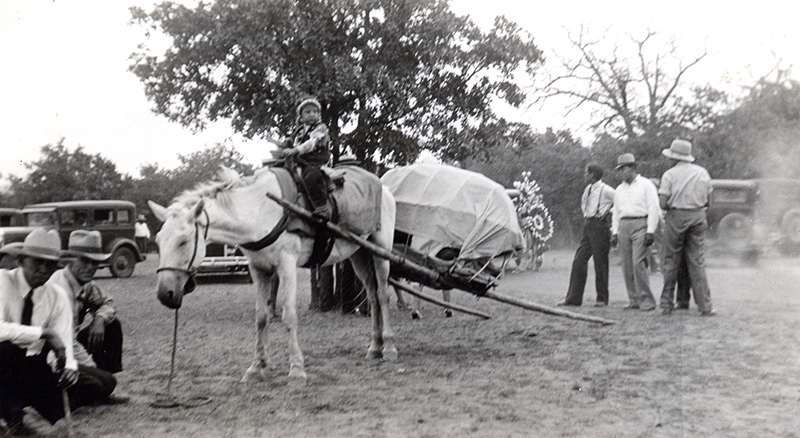The Encyclopedia of Oklahoma History and Culture
CRATERVILLE PARK INDIAN FAIR.
Craterville Park Indian Fair (1924–33), held near Cache, Oklahoma, was a short-lived extravaganza conceived by Frank Rush, the retired manager of the Wichita National Forest and Game Preserve. By an agreement with a coalition of Apache, Comanche, and Kiowa Indians, the event's avowed purpose was "to create self confidence and to encourage leadership by the Indian." The fair featured American Indian crafts, agricultural exhibits, foot races, horse races, archery competitions, and dances, as well as reenactments of Indian attacks on white settlers. The spectacle drew large crowds until 1933, but Rush's death preceded the event that year, and attendance precipitously dropped.
See Also
FAIRS, FESTIVALS, FOLKLIFE, POWWOWS, TRADITIONAL ARTS–AMERICAN INDIAN
Learn More
Clyde Ellis, A Dancing People: Powwow Culture on the Southern Plains (Lawrence: University Press of Kansas, 2003).
Muriel H. Wright, "The American Indian Exposition in Oklahoma" The Chronicles of Oklahoma 24 (Summer 1946).
Citation
The following (as per The Chicago Manual of Style, 17th edition) is the preferred citation for articles:
Thomas L. Hedglen, “Craterville Park Indian Fair,” The Encyclopedia of Oklahoma History and Culture, https://www.okhistory.org/publications/enc/entry?entry=CR023.
Published January 15, 2010
© Oklahoma Historical Society


